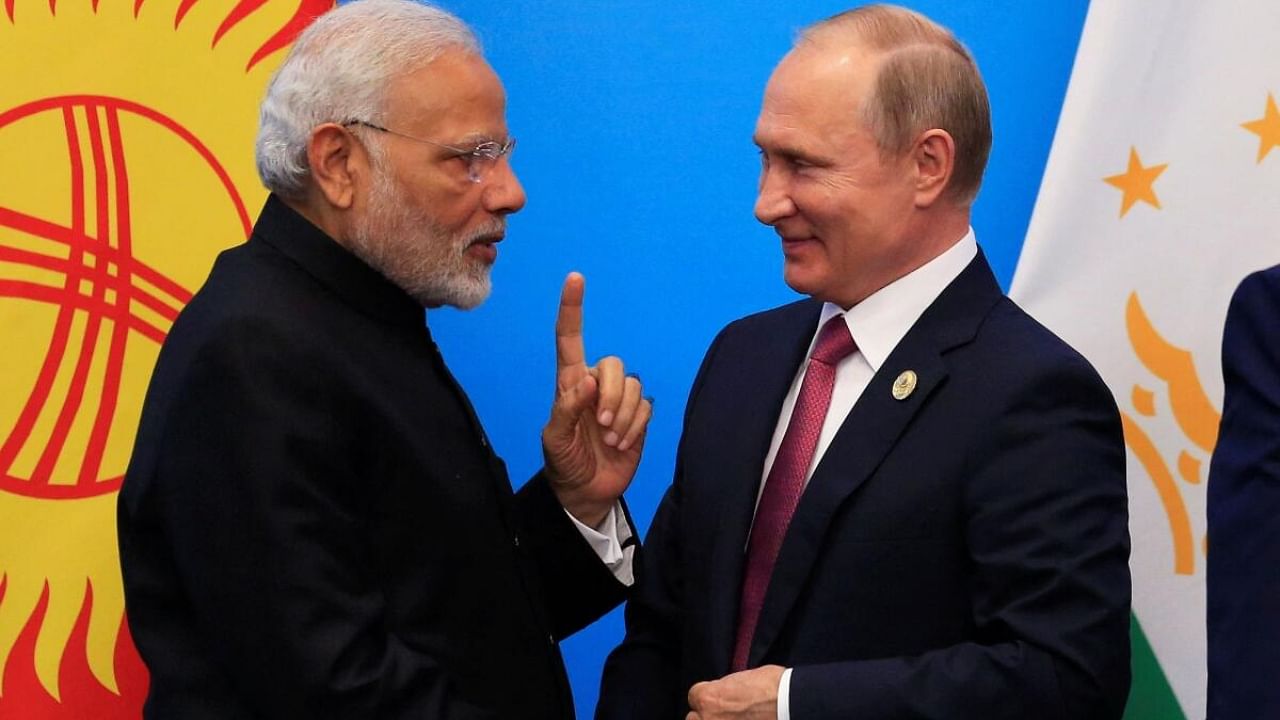
Even as Prime Minister Narendra Modi’s government has invited him to attend the G20 summit on September 9 and 10, Russian President Vladimir Putin has not yet committed to visiting New Delhi for the conclave, which has come under the shadow of the former Soviet Union nation’s conflict with Ukraine.
“I don’t know yet, I didn’t think about it, we’ll see,” Putin was quoted saying in a report by the TASS News Agency of Russia. He was replying to a question by a journalist about his plan to visit New Delhi for the G20 summit.
New Delhi has already sent an invitation to the Russian President as well as the leaders of the other G20 member nations to attend the summit. But Arindam Bagchi, the spokesperson of the Ministry of External Affairs (MEA), during a media briefing on July 20, refrained from specifically confirming if the Russian President would attend the summit physically. He said that the Government of India hopes that all the invitees will be able to participate in the summit in person.
Read | More corrupt, fractured and ostracised: How Vladimir Putin has changed Russia in over two decades
Bagchi had earlier on July 6 said that New Delhi hoped to see Putin at the G20 summit.
The Russia-Ukraine conflict has already cast its shadow over India’s G20 presidency. None of the G20 ministerial meetings New Delhi hosted in the past few months resulted in a consensus on outcome documents, as Russia and China objected to paragraphs which condemned Russia’s war against Ukraine and referred to its impact on the global economy. India had to issue the chair’s summaries at the end of the meetings. Uncertainty now looms large over the joint communiqué to be issued after the summit on September 9 and 10.
Putin decided against physically attending the BRICS summit to be held in Johannesburg from August 22 to 24 – obviously in view of the arrest warrant issued against him by the International Criminal Court (ICC) on March 17 last for allegedly scheming to deport children in occupied Ukrainian territories to Russia. He will take part in the summit virtually, while his foreign minister Sergey Lavrov will travel to Johannesburg to attend the conclave.
South Africa is a signatory of the ‘Rome Statute’, the treaty governing the ICC, and it would have come under pressure from the United States and other Western nations to execute the arrest warrant against the Russian President had he travelled to the country to attend the BRICS summit. Putin’s decision to participate in the summit virtually thus saved South African President Cyril Ramaphosa from a diplomatic predicament.
India, unlike South Africa, is not a signatory of the Rome Statute and hence has no obligation to execute the arrest warrant issued against the Russian President if he shows up for the G20 summit.
Ever since Russia launched its “special military operations” in Ukraine on February 24 last year, India has been drawing flak for not joining the US and other Western nations in condemning Moscow for its aggression against Kyiv. New Delhi has refrained from criticising Moscow, apparently in view of India’s deep Cold War-era ties with Russia. India also took into account its decades-old dependence on Russia for defence equipment, including high-tech military hardware.
While New Delhi has been maintaining the strategic balance in its ties with Moscow and Washington DC over the past couple of decades, Modi’s meeting with President Joe Biden in the White House on June 22, however, added new momentum to the India-US ties, particularly in the fields of defence as well as critical and emerging technologies. With Washington keen to make New Delhi less reliant on Russia for military hardware, the Modi-Biden meeting saw the US agreeing to remove regulatory barriers to defence industrial cooperation with India.
Modi called Putin a few days after returning from his state visit to Washington DC, signalling that India would continue to maintain the strategic balance in its ties with Russia and the US.
